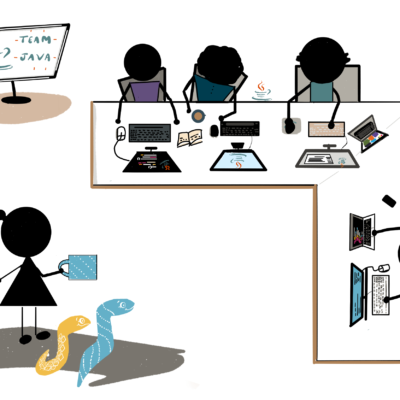
Few three-letter words have polarized our country more than DEI—formerly known as diversity, equity, and inclusion. DEI has engaged America in a ruinous rhetorical civil war, and it is tearing our nation apart. Fiercely devoted warriors on both sides of the debate passionately assert their case, willing to sacrifice time and effort to preserve or suppress DEI’s cause, which in many minds is to encourage representation of Black Americans.
Since the murder of George Floyd in May 2020, several phrases associated with helping Black people have come under heavy fire, such as: “Woke” and “Black Lives Matter.” “DEI” is no different, even though statistics in many areas show that non-Black people have benefitted more from DEI programs than Black people. Sometimes, the facts don’t matter. Research shows that America would be much better off economically if race-based barriers against Black people were abolished. Sometimes, even money doesn’t matter.
But words matter. Words trigger emotional meaning based on their associations. Consider the individual who hates “Obamacare” but loves the Affordable Care Act or admonishes the government to keep its hands off their money but embraces their monthly Social Security check.
It has been said that if you want people to listen, you must speak their language. The language of American business leadership and national prosperity is capitalism. DEI is a capitalist tool to increase income and wealth through fairness. Increased fairness results in increased employee engagement. Increased employee engagement leads to greater innovation, productivity, and profitability.
Sadly, for America, DEI attackers have fallen prey to the paradoxically seductive and anxiety-provoking power of oppression psychology—tactics designed to protect superiority by erecting and maintaining race-based barriers to opportunity under the flawed assumption of a zero-sum world. Dehumanization is one of the earliest race-based tactics effectively applied to this end.
The dehumanization inherent in chattel slavery was necessary to rationalize its oppression and brutality for those who profited from it. Although slavery was abolished, the objectives of Black dehumanization lived on through Jim Crow laws and government-sponsored domestic terrorism.
Dehumanization is a cunning, persuasive, and polarizing tool because it confers a racial pride that can provide a powerful boost to self-esteem, even for non-elite members of a racial group. At the same time, as research from Nobel Prize-winning economist Gary Becker suggests, the tendency for non-elite white individuals to internalize this superiority means they will become defensive if it is threatened. That defensiveness yields resentment and hatred so strong that individuals are willing to forgo their economic self-interest to uphold race-based oppression against Black people.
Paradoxically, non-elite white people and Black people have more in common with each other than non-elite whites have in common with their elite. They face many of the same socioeconomic challenges, except for race.
The idea that Black people might benefit from DEI programs has caused anxiety, controversy, conflict, fear, and resentment. When one is accustomed to and feels deserving of the whole pie, even a crumb going to the hungry can conjure the pain of loss.
The word “fairness” has never been associated with Black people in America. Corporate America has a chance at self-interested redemption by shifting from demonized “DEI” to fundamental fairness for all of humanity, not just one isolated group. Instead of killing off DEI departments because of the false narrative that DEI only helps Black people, corporate America should demonstrate leadership and fiduciary duty to stakeholders by explaining that DEI is a framework intended to help advance toward the too-often elusive concept of fairness, which will improve business engagement, productivity, profitability, and American economic prosperity.
Race-based barriers to opportunity have cost the U.S. economy over $50 trillion since 1990. Tearing them down can generate $5 trillion in just a few years. Improving employee engagement unleashes innovation and productivity that can generate corporate profits of $550 billion annually. The profits that fairness can bring to corporations and the U.S. GDP should have the full attention of corporate boards, CEOs, CFOs, elected officials, and policymakers.
Fairness is a matter of wealth and national security that cannot and should not be ignored. It is the most patriotic form of capitalism—but it’s being obscured by semantics and linguistic nuances. If we are able to speak the same language and get on the same page, the path forward lies just ahead.
More must-read commentary published by Fortune:
The opinions expressed in Fortune.com commentary pieces are solely the views of their authors and do not necessarily reflect the opinions and beliefs of Fortune.





